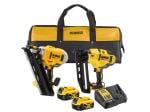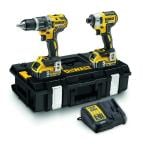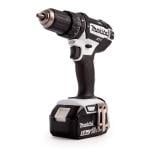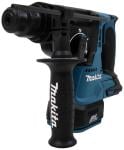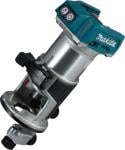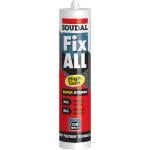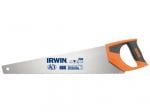Getting Started In Woodworking
Starting in the world of woodworking can be overwhelming. It’s not just about understanding the speciality woodworking tools that you’ll need to use, but also identifying the understanding of the various types of wood and how they react to various tools. There is always so much to learn, and even the most advanced artisans are still forever perfecting their craft. The fact is, you shouldn’t let it overwhelm you. By following a simple step-by-step guide and experimenting with different styles, you’ll soon find yourself falling in love with woodworking and improving significantly as you go. To get you off to a good start, here are some essentials on health & safety, and the must-have tools that you’ll need in your arsenal to hit the ground running… P.s – No running in the workshop, please!
1 – Health & Safety: Make No Exception
Handling sharp tools and being around the sheer force of power tools, woodworking isn’t the safest of activities. Just to be clear, it is only dangerous if you are careless. Provided you follow the basic safety rules, then you can significantly reduce the risk of injury. To be effective, you’ll need to implement these safety rules every single time! Committing yourself to a health & safety regime will not only keep your appendages attached to your body, but you’ll also feel much more comfortable enjoying your woodworking.
2 – The Top 10 Tools Every Woodworker Needs
Hand tools are essential for crafting and completing any project as a woodworker. Here is a list of the top 10 hand tools that every woodworker needs to get started! Certainly, the list will grow as you progress, but for now, make sure you can tick everything off this list:
- Hammer
- Layout square
- Tape measure
- Utility knife
- Various chisels
- Level
- Screwdriver sets
- Sliding bevel
- Sets of nails
- Block plane
3 – The Top 7 Power Tools For Woodworkers
For the modern woodworker, you have a wide range of incredible power tools at your disposal. This can make the process much quicker and easier so that you can complete multiple projects as efficiently as possible. Here is a list of the top 7 power tools that every woodworker needs:
- A circular saw
- Jigsaw
- Power drills
- Random orbital sander
- A table saw
- Compound mitre saw
- Router
4 – The Best Woodworking Machines
But of course, it’s more than just power tools that you’ll need to thrive in woodworking. Several impressive woodworking machines can help you make short work of some of the most otherwise tedious tasks. These include, the full-size table saw and a band saw. Such machines are far too cumbersome to carry around from job to job, so you’ll find the best set-up in the workshop.
5 – Finding the Right Lumber for Your Woodworking Projects
A large part of being a quality woodworker is understanding the lumber that you’ll need to use for each project. For anyone who has spent plenty of time browsing DIY shops and lumberyards, you’ll know that there is a lot of poor quality lumber out there which isn’t particularly suitable for a decent woodworking project. A quality woodworker will be able to pick through the stacks and find the perfect pieces of stock to avoid warping, cupping, or splitting, etc.
6 – The Easiest Way to Check for Square
Most woodworking projects will require that you check a joint, intersection, or board for ‘squareness’, or simple ‘square. Sometimes, you’ll need to confirm that your entire project is square. Certainly, for the smaller projects, a simple squaring tool will suffice; however, for the larger projects, you will have to check the square by measuring diagonally between two of the opposing corners. It sounds like much more of a headache than it is. These are the sorts of things that will become second nature after a while of woodworking, so don’t stress too much for now.
7 – Workshop Accessories Every Woodworker Needs
And of course, it’s not just woodworking tools that you are going to need. There are plenty of workshop accessories that can help make your life safer and easier. For example, a dust collection system for when you are sanding (you’ll be grateful not to have such a big clean-up every time), and jigs to keep multiple sheets of wood together or stabilise some lumber.
8 – Find Your Groove
The wonderful thing about woodworking is everyone develops their unique style. Yes, some certain tools and methods must be followed to the letter, but you’ll find plenty of opportunities to experiment. So, find your groove and enjoy the process. One of the greatest feelings in the world is mastering a new woodworking technique or simply feeling more confident with each job. Enjoy!


